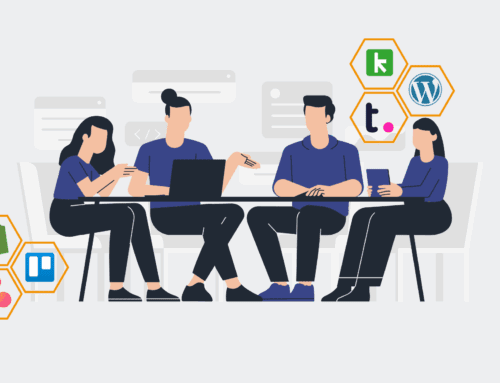Ethical AI in HR: Navigating Resume Parsing with Integrity and Oversight
The promise of artificial intelligence in human resources is undeniable. From streamlining recruitment to personalizing employee experiences, AI offers a transformative edge. Yet, amidst the excitement, a critical conversation must take center stage: ethical implementation. Nowhere is this more apparent than in AI-powered resume parsing—a technology capable of profound efficiency gains, but also laden with potential pitfalls if not handled with foresight and integrity. For HR leaders and COOs, the goal isn’t merely to adopt AI, but to embed it ethically, ensuring fairness, transparency, and robust oversight.
At 4Spot Consulting, we’ve seen firsthand how automating business systems can drive revenue growth and eliminate bottlenecks. However, with powerful tools like AI-driven resume parsing, the strategic imperative shifts beyond mere efficiency; it demands a deep commitment to ethical frameworks. Ignoring this isn’t just a compliance risk; it’s a fundamental threat to your brand’s reputation and your ability to attract and retain top talent.
The Double-Edged Sword: Efficiency vs. Ethical Pitfalls
Resume parsing, at its core, involves using AI to extract and categorize information from resumes, making it easier for recruiters to search, filter, and manage applications. This can dramatically reduce the time spent on manual screening, allowing HR professionals to focus on higher-value tasks like candidate engagement and strategic workforce planning. However, without careful design and continuous monitoring, these systems can inadvertently perpetuate or even amplify existing biases found in historical hiring data. Biases related to gender, ethnicity, age, or even specific universities or prior employers can creep into algorithms, leading to discriminatory outcomes.
The lack of transparency—often referred to as the “black box” problem—is another significant concern. If HR teams don’t understand how an AI system arrives at its decisions, it becomes impossible to identify and correct biases, or to explain hiring outcomes to candidates with confidence. Data privacy, too, looms large, given the sensitive personal information contained within resumes.
Best Practices for Ethical AI Resume Parsing
1. Transparent Algorithmic Design and Continuous Auditing
Ethical AI begins with intentional design. When implementing resume parsing solutions, insist on transparency from vendors regarding their algorithms’ training data, methodologies, and bias detection mechanisms. It’s not enough to simply trust; you must verify. Conduct regular, independent audits of your parsing system’s performance, specifically looking for disparate impact on protected groups. This isn’t a one-time check but an ongoing process of monitoring and recalibration. Understanding how the system weighs different criteria and identifying potential proxies for protected characteristics is crucial for maintaining fairness.
2. Human-in-the-Loop Oversight and Decision-Making
AI should augment, not replace, human judgment in critical HR processes. Resume parsing should serve as a powerful filtering and organizational tool, but final decisions on candidate progression must always involve human oversight. This “human-in-the-loop” approach ensures that edge cases, nuanced qualifications, or potentially overlooked candidates are given fair consideration. HR professionals must be empowered to override AI recommendations, providing a vital safeguard against algorithmic errors or biases. This blend of automation and human intelligence is at the heart of what we advocate for in our OpsMesh framework – strategic automation designed to enhance, not diminish, human potential.
3. Robust Data Security and Privacy Compliance
Resumes contain highly personal data. Implementing AI-powered parsing systems necessitates a stringent commitment to data security and privacy. Ensure your chosen solution complies with all relevant regulations (e.g., GDPR, CCPA). This includes secure data storage, anonymization techniques where appropriate, strict access controls, and clear data retention policies. Candidates must also be informed about how their data is being used and processed by AI systems, fostering trust and compliance. This ties directly into our expertise in CRM & Data Backup, ensuring that sensitive information is handled with the utmost care and integrity.
4. Comprehensive Training and Education for HR Teams
Technology is only as effective as the people wielding it. HR teams must be thoroughly trained not just on how to use AI-powered resume parsers, but also on the ethical considerations surrounding them. Education should cover potential biases, the importance of human oversight, data privacy best practices, and how to interpret and challenge algorithmic outputs. Empowering your HR professionals with this knowledge ensures they can leverage AI responsibly and confidently, turning a powerful tool into a strategic asset rather than a liability.
Building an Ethical AI Framework with 4Spot Consulting
Implementing ethical AI in HR, particularly for resume parsing, isn’t about shying away from innovation; it’s about embracing it intelligently and responsibly. At 4Spot Consulting, we specialize in helping high-growth B2B companies integrate AI into their operations, not just for efficiency, but for strategic advantage. Our OpsMap™ diagnostic identifies opportunities for automation and AI that align with your business values, ensuring that systems like resume parsing are built with ethical considerations baked in from the start. We then move to OpsBuild, implementing and refining these systems, connecting dozens of SaaS applications via platforms like Make.com, to create a cohesive, compliant, and powerfully effective HR tech stack.
The future of HR is inextricably linked with AI. By proactively addressing ethical considerations in areas like resume parsing, you not only mitigate risk but also cultivate a more equitable, transparent, and ultimately more effective hiring process. It’s about leveraging technology to unlock human potential, not constrain it. We’ve helped clients save hundreds of hours monthly by automating their resume intake and parsing while ensuring these systems uphold the highest ethical standards. This isn’t just about saving 25% of your day; it’s about building a foundation of trust and fairness.
If you would like to read more, we recommend this article: Mastering AI-Powered HR: Strategic Automation & Human Potential






